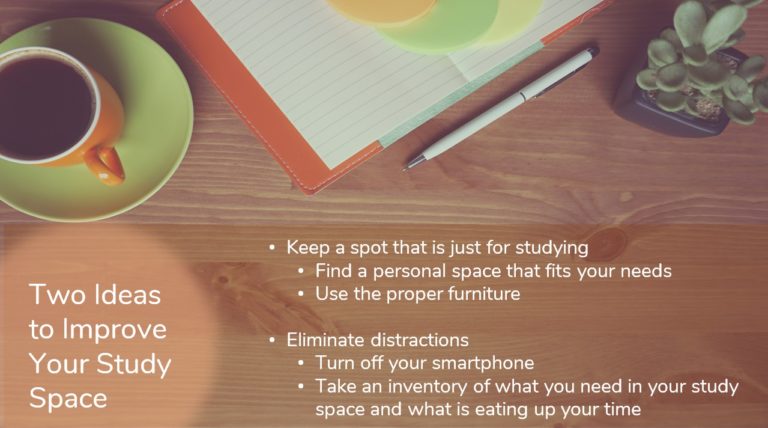How to Study Chemistry
Chemistry is rightfully one of the most difficult college courses that requires a lot of time and devotion. However, just spending time studying by rereading the notes is not the most efficient way to prepare yourself for midterms and final exams. In this post, we want to revisit the topic of studying chemistry and how to study smarter and more efficient rather than more or longer by employing research-based tricks and approaches to study chemistry.
How Much is Too Much and How Much is Enough When We Are Talking About Study Time?
You remember what your professortold you that you should be studying at least an hour (or, better yet—two) for each hour of chemistry lecture you have had. So, 3-4 hours of lecture time + 6-8 hours of outside of class studying is roughly 9-12 hours’ worth of work per week. This way, a chemistry course (especially if we’re talking about advanced courses like organic chemistry) is often compared to a part-time job based on the time commitment it requires. So, it is also important to consider the timing for your course. In my humble opinion, it is not quite as serious as a part time job, but still is a serious commitment.
Remembering vs Recognizing The Material
In addition to the time commitment we need to look at how you study! Reading and rereading the book or your notes, listening to Khan’s academy videos, is not studying! It is, what cognitive scientists call a “passive learning” or a review, if you like. This way you are not actually engaging in any active learning but merely are exposing yourself to the information flow. Think about it as learning a skill, any skill, say, playing piano. If you read and reread your “Piano for the beginners” book over a few times and maybe push a button or two from time to time, you’re never going to actually master the instrument. If you watch some videos about skateboarding tricks but never do anything more involved than riding in a straight line, you’re never going to be able to do those tricks.
Rereading the book or your notes, or re-watching an educational video is more about recognition of the material rather than remembering, learning, or understanding it. Let me illustrate it with a simple example of a magazine that you’ve read some time ago but still have lying around. Pick it up and flip through the pages. I’m willing to bet that the moment you glance at a page you have a feeling you remember what the article on that page is all about or that you remember seeing a picture or an advertisement. In reality, you merely recognize the page! Now, try to predict what’s on the next page or a few pages ahead. If you were indeed remembering the magazine contents, you would be able to. Chances are, however, you can’t do that! Same works with chemistry. When you look through your notes or a textbook you get the feeling that you remember the material, while you only recognize the material!!! Don’t get fooled by the false recognition!
Study Chemistry Through Practice
Developing chemistry skills is no different—you do it through practice. Lots and lots of practice. “But hey,” you say, “I’m already doing it and I’m still not getting it!” Let me guess, last time you practiced your “chemistry skills” you spent three hours straight up doing problems based on the material that you covered last week trying to prepare to the upcoming quiz. Tell me I’m wrong! No wonder you have a huge mess in your head after trying to do all in one shot.
Decades of cognitive research suggest that you need to “divide and conquer” when it comes to learning. You only have about 30 to 40 minutes of productive time before you need to take a break. All time spent “studying” after the initial 30-minute period is going to have marginal to no effect on the material comprehension. On the contrary, it might even hurt you by exhausting your cognitive powers and not achieving any result.
The “Module” Approach
Instead of spending hours and hours cracking those random problems from all over the chapter try this:
- Make a list of all topics you have covered during the week. It works best when you do it every day after the lecture. Usually you would cover a few small topics every lecture, so pay attention when you’re shifting gears.
Your topics should be small, for instance: a specific skill (e.g. balancing chemical equations), a theory application (e.g. Hess’ Law applications), a type of reaction (e.g. Markovnikov addition to alkenes), certain reaction mechanism (e.g. SN2), physical or chemical properties of a family of compounds (e.g. acid-base properties of amines, or IR of carbonyls), etc. - Every day make time for 3-4 smaller sessions (30-40 minutes) minutes focusing on just one topic. Get an organizer box for folders and make a folder for each topic or use dividers in a 3-ring binder. Each topic should have two sub-folders: one for the theoretical material and notes, one for practice problems.Your first session of the day will be focused on putting together the theoretical aspects of the topic. Look through the book and your notes and write down all important points.
After you’re done putting together a theoretical part of a folder, take break, go for a walk, work out, make a dinner (but do not go online or on any social websites! I’ll talk about why not some other time, just trust me on this one this time). Then come back and work for another 30-40 minutes on problems for the same topic. If you notice any additional trends or come up with any cool tricks to help you with the topic, add those to your theoretical folder. Do not mix different topics during the same sequence of study sessions.
Take a break and do another 30-40 minute practice session. Repeat the next day for the next topic. - Once a week have a review day, go through your entire folder box or a binder, spending about 5 min on each folder and giving a mini lecture to yourself (mother, brother, teddy-bear, empty chair, mirror reflection…) of what this folder/topic is all about. You should be able to come up with all major points and a couple of example to illustrate what you’re talking about without opening the folder. If you can’t, you know that you need to revisit this topic. Take a break and revisit the topic you had troubles with. This is going to be the only day a week you are allowed to “mix” things up.
By using this approach, you are creating your own “wiki” for your course content broken down into specific topics each accompanied by corresponding examples. You can always add things to your modules as the semester progresses and you learn new material. Often, new material can add to some older topics, so this way you will be able to keep your notes up to date and organized.
Try this study approach and let me know how it works for you. You can also ask one of our tutors to help you come up with the most efficient way to study that will fit your unique needs and personality.
Do you have any awesome tricks that you found useful? Tell us and we’ll make sure to tell the world about your awesome invention!






